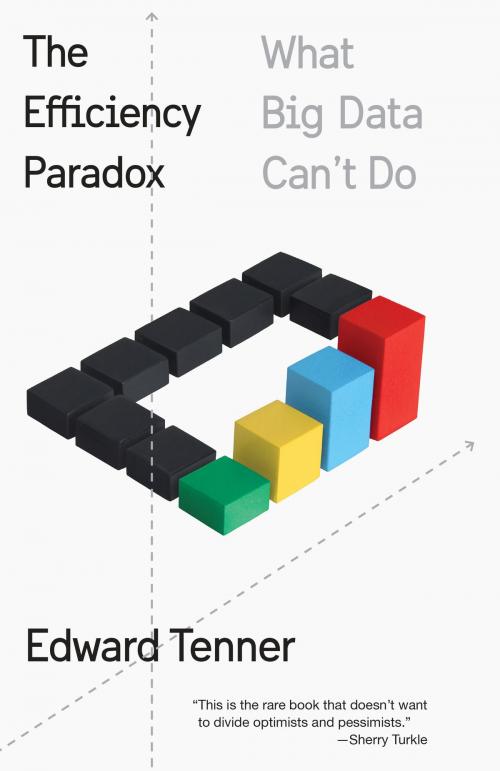The Efficiency Paradox
What Big Data Can't Do
Business & Finance, Economics, Nonfiction, Health & Well Being, Self Help, Self Improvement, Social & Cultural Studies, Social Science| Author: | Edward Tenner | ISBN: | 9780525520306 |
| Publisher: | Knopf Doubleday Publishing Group | Publication: | April 17, 2018 |
| Imprint: | Vintage | Language: | English |
| Author: | Edward Tenner |
| ISBN: | 9780525520306 |
| Publisher: | Knopf Doubleday Publishing Group |
| Publication: | April 17, 2018 |
| Imprint: | Vintage |
| Language: | English |
A bold challenge to our obsession with efficiency—and a new understanding of how to benefit from the powerful potential of serendipity.
Algorithms, multitasking, the sharing economy, life hacks: our culture can't get enough of efficiency. One of the great promises of the Internet and big data revolutions is the idea that we can improve the processes and routines of our work and personal lives to get more done in less time than we ever have before. There is no doubt that we're performing at higher levels and moving at unprecedented speed, but what if we're headed in the wrong direction?
Melding the long-term history of technology with the latest headlines and findings of computer science and social science, The Efficiency Paradox questions our ingrained assumptions about efficiency, persuasively showing how relying on the algorithms of digital platforms can in fact lead to wasted efforts, missed opportunities, and, above all, an inability to break out of established patterns. Edward Tenner offers a smarter way of thinking about efficiency, revealing what we and our institutions, when equipped with an astute combination of artificial intelligence and trained intuition, can learn from the random and unexpected.
A bold challenge to our obsession with efficiency—and a new understanding of how to benefit from the powerful potential of serendipity.
Algorithms, multitasking, the sharing economy, life hacks: our culture can't get enough of efficiency. One of the great promises of the Internet and big data revolutions is the idea that we can improve the processes and routines of our work and personal lives to get more done in less time than we ever have before. There is no doubt that we're performing at higher levels and moving at unprecedented speed, but what if we're headed in the wrong direction?
Melding the long-term history of technology with the latest headlines and findings of computer science and social science, The Efficiency Paradox questions our ingrained assumptions about efficiency, persuasively showing how relying on the algorithms of digital platforms can in fact lead to wasted efforts, missed opportunities, and, above all, an inability to break out of established patterns. Edward Tenner offers a smarter way of thinking about efficiency, revealing what we and our institutions, when equipped with an astute combination of artificial intelligence and trained intuition, can learn from the random and unexpected.















